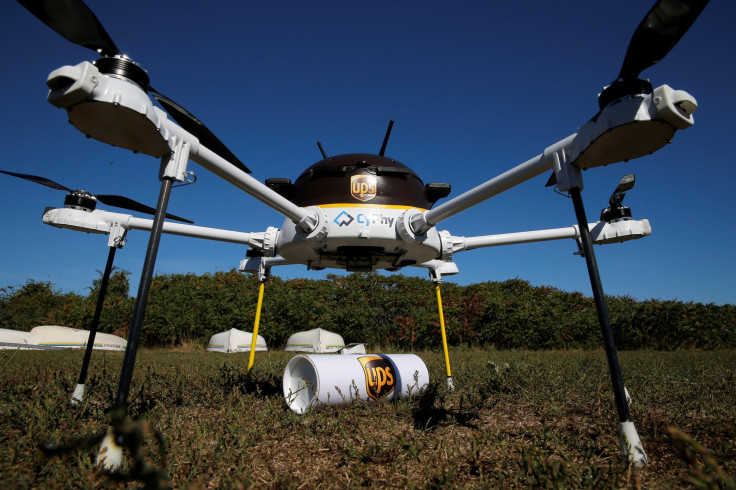FAA Drone Remote Identification System In The Works?

Drones have already become common, but with commercial ones being tested by the likes of Google and Amazon, the government will sooner or later have to step in and determine how they should be managed. The Federal Aviation Administration (FAA) is working on remote identification system for drones, which would ensure their safety. It held a meeting with stakeholders such as Amazon and Ford and the New York Police Department on June 21 and releases a press statement later.
Currently drones weighing over half a pound need to have ID tags, but this identification system might not work well, as seeing the ID tags while the drone is mid-air is near impossible.
Read: Drone Deliveries Could Change Logistics Permanently
“The Aviation Rulemaking Committee considered issues such as existing regulations applicable to drone identification and tracking, air traffic management for drones, concerns and authorities of local law enforcement, and potential legal considerations. The group developed some preliminary questions and identification parameters, and reviewed a sample of existing identification technologies.” FAA stated in a press release on June 30.
FAA has long been trying to figure out the problem of drones using the airspace, but now it has laid stress on an identification management system for drones. The authority had previously proposed a registration requirement for drones, but had been turned down by a Washington, D.C. court. A remote ID system could work only if either the owner registers the drone or the company making the drone could provide a list of the aerial vehicles and whom it sold them to, which the FAA could maintain in a database.
A remote identification system seems like a more plausible solution. Tying a drone to its owner seems necessary, since any activity a drone is responsible for, needs to be properly traced. In case of an accident or a crime committed by using a drone, a remote identification system will be helpful in tracing the culprit. Furthermore, since every drone could be identified, the onus to ensure that drones will fly safely will rely on the owner.
Tying a drone to a pilot is difficult generally, since while the drone might be hundreds of feet up in the air, the pilot might be controlling it from anywhere.
Recode reported Friday that Congress is debating FAA’s authority to regulate non-commercial drones.
The need for FAA and Congress to come to a decision soon on drone regulation is immediate due to the risks involved. A drone could be easily modified to remotely deliver an explosive. Vice reported on June 21, that a Russian software can actually hack drones to enter no-fly zones and protected zones such as airports.
Read: US Fighter Jet Downs Iranian Drone In Syria, Second Pro-Regime Aircraft Shot Down In 3 Days
Drone maker DJI might have the ideal solution. It has proposed an “electronic identification system” in which drones will actually transmit communication details such as location and registration number.
The FAA committee is scheduled to meet on July 18 and is expected to make formal recommendations on Sept. 30.
© Copyright IBTimes 2024. All rights reserved.





















